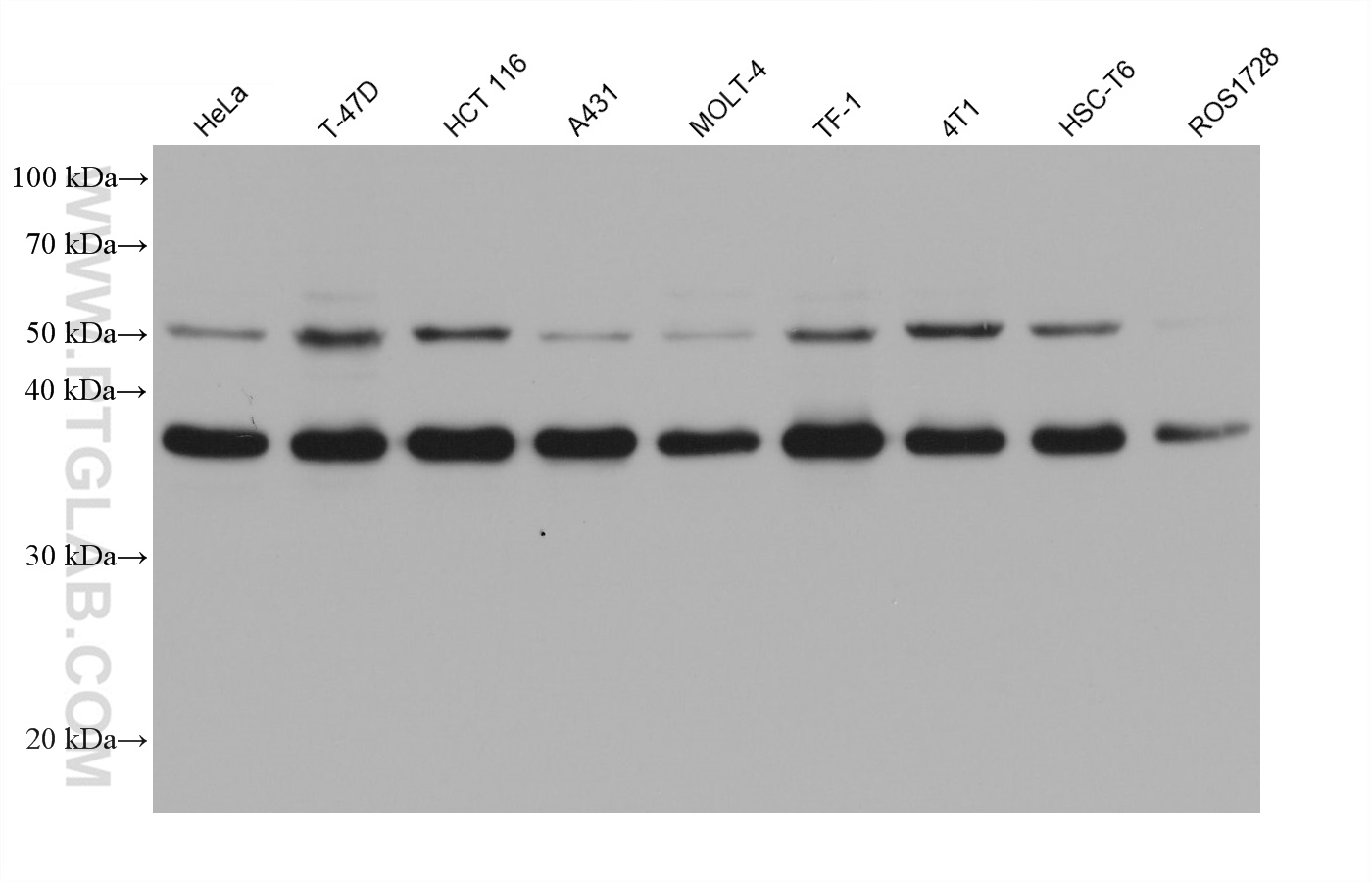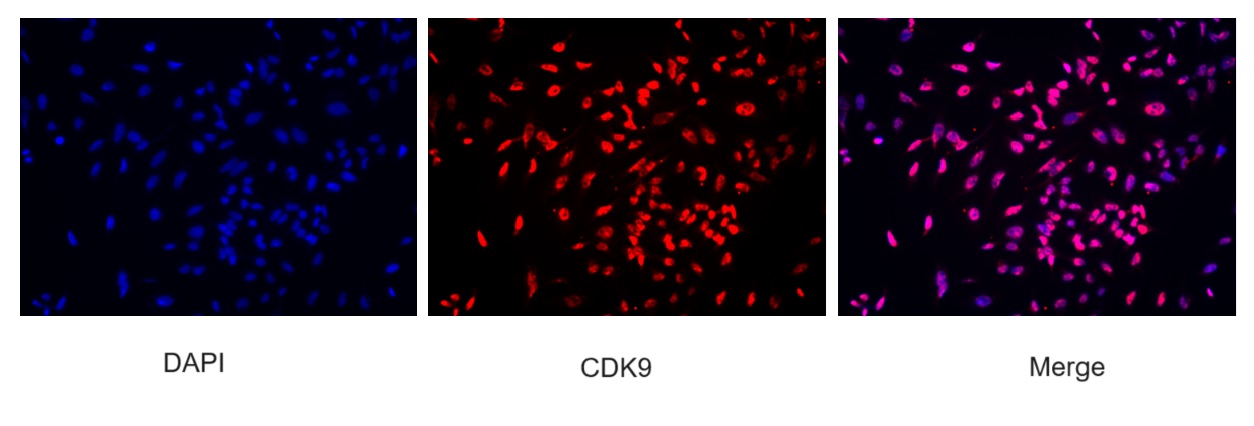验证数据展示
产品信息
67256-1-PBS targets CDK9 in WB, IF/ICC, Indirect ELISA applications and shows reactivity with Human, Mouse, Rat samples.
| 经测试应用 | WB, IF/ICC, Indirect ELISA Application Description |
| 经测试反应性 | Human, Mouse, Rat |
| 免疫原 | CDK9 fusion protein Ag29178 种属同源性预测 |
| 宿主/亚型 | Mouse / IgG1 |
| 抗体类别 | Monoclonal |
| 产品类型 | Antibody |
| 全称 | cyclin-dependent kinase 9 |
| 别名 | C 2k, CDC2L4, CDK9, Cell division protein kinase 9, CTK1, cyclin dependent kinase 9, PITALRE, TAK |
| 计算分子量 | 372 aa, 43 kDa |
| 观测分子量 | 38-42 kDa, 55 kDa |
| GenBank蛋白编号 | BC001968 |
| 基因名称 | CDK9 |
| Gene ID (NCBI) | 1025 |
| 偶联类型 | Unconjugated |
| 形式 | Liquid |
| 纯化方式 | Protein A purification |
| UNIPROT ID | P50750 |
| 储存缓冲液 | PBS only , pH 7.3 |
| 储存条件 | Store at -80°C. The product is shipped with ice packs. Upon receipt, store it immediately at -80°C |
背景介绍
CDK9(Cyclin-dependent kinase 9) is a member of the Cdc2-like family of kinases. Its cyclin partners are members of the family of cyclin T (T1, T2a and T2b) and cyclin K. The CDK9/cyclin T complexes appear to be involved in regulating several physiological processes. CDK9 has also been described as the kinase of the TAK complex, which is homologous to the P-TEFb complex and involved in HIV replication. In addition, CDK9 seems to have an anti-apoptotic function in monocytes, that may be related to its control over differentiation of monocytes (PMID: 12432243). CDK9 has two isoforms with the molecular mass of 42 kDa and 55 kDa, and the relative abundance of Cdk9(42kDa) and Cdk9(55kDa) changes in different cell types (PMID: 12706900, 15780980).

